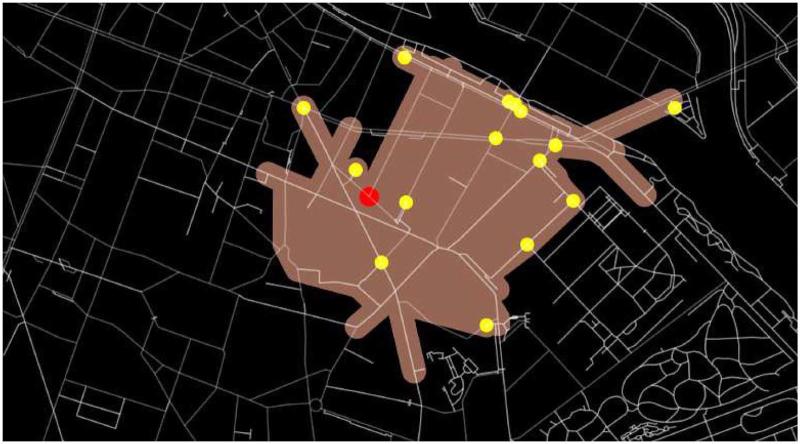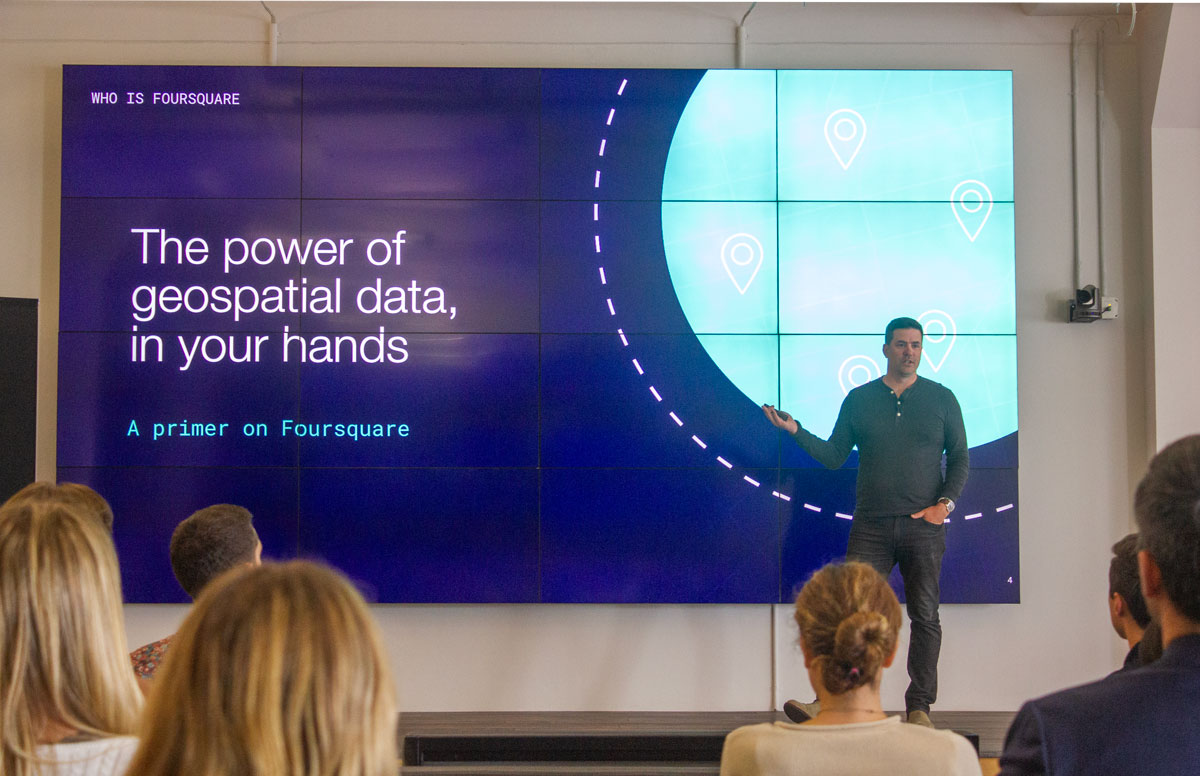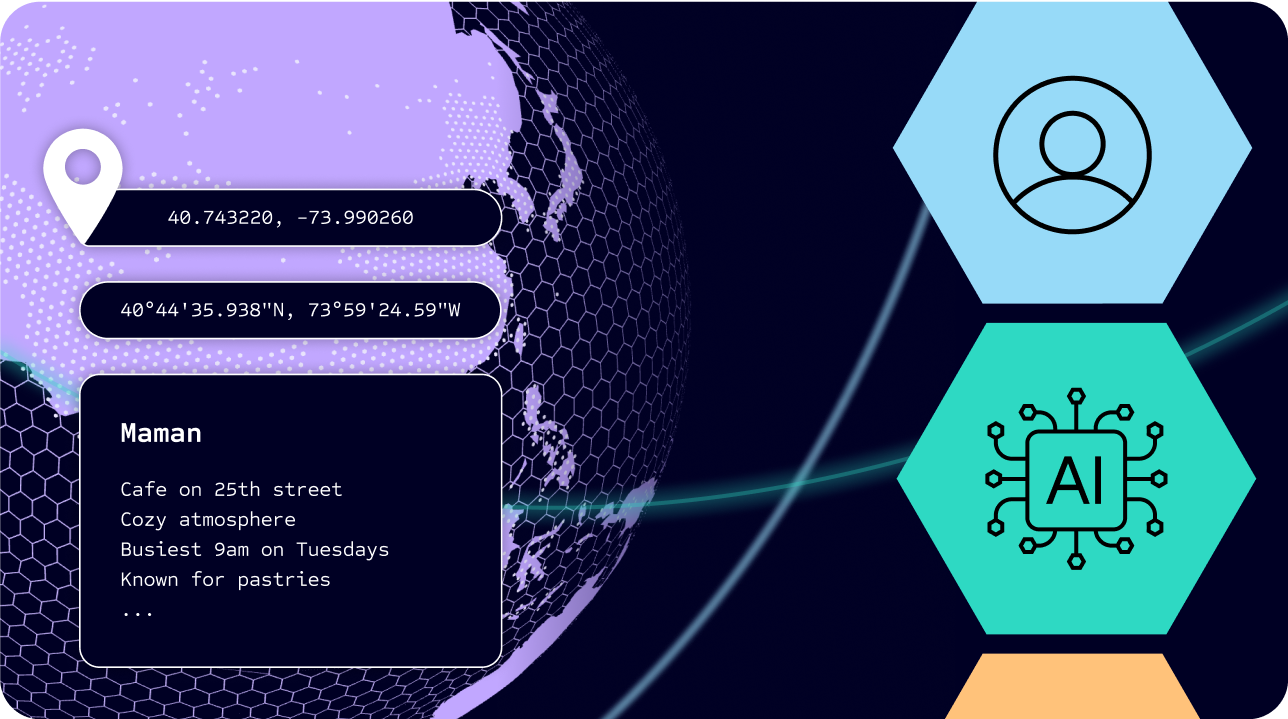It goes without saying that the places where people live, interact and work influence the outcomes of human behavior. This information is especially critical to the development of urban spaces, with the majority of people living in cities and behavior patterns constantly in flux.
The vast amounts of behavioral data generated from mobile devices and social media provides unique insights that survey data, small scale research, field research and focus groups cannot offer. For instance, social media data provides spatio-temporally referenced digital traces left by human use of urban environments. With this easy access to the intangible aspects of urban life such as people’s behaviors and preferences, researchers can investigate human activities and uncover key insights for urban planners.
As a pioneer in the geolocation data industry, Foursquare creates proprietary technology for understanding the places people go, offering a trustworthy, privacy-safe source of human activity data. Researchers in the Geographic Data Science Lab from University of Liverpool in the United Kingdom leveraged the power of Foursquare’s location data and conducted a study of human behavioral patterns using a longitudinal mobility dataset from the Foursquare Future Cities Challenge (FCC) to describe check-in activity (movement) between different venues (point of interests) across ten global cities including London, New York and Singapore. From this analysis, the researchers developed a Geographic Data Science framework that transformed the Foursquare check-in locations and user origin-destination flows data into knowledge about the emerging forms and characteristics of cities’ neighborhoods.
By analyzing information from Foursquare with these Geographic Data Science methods, the researchers were able to explore the functional structure of cities and investigate the relationship between activity spaces and their contexts. One interesting finding was that the majority of check-ins are mostly made between midday and night within each city. Based on the researchers’ analysis, there is a strong negative correlation between the midday and night check-ins due to a dissimilar geographic distribution. This suggests there is a tendency towards specialization within certain neighborhoods of the city, meaning that some areas function to perform more midday activities in comparison to night activities and vice versa. In instances like this, visitation patterns can be used to profile certain urban areas by prevalent activities and forecast people’s preferences in order to predict how demand for venues changes over time.
“Foursquare’s check-in locations and user origin-destination enabled us to transform data into knowledge about the emerging forms and characteristics of cities’ neighborhoods. Foursquare’s venues are unique with hyper-local characterisation of their built environment, complemented with a range of measures describing their diversity, morphology and mobility. Based on human dynamics and their contexts, Foursquare’s longitudinal mobility dataset allowed us to profile and provide insights into contextual and human dynamics across global cities.”
_ – Alex Singleton, Professor of Geographic Information Science, University of Liverpool, UK
This study illustrates how location data can be used to provide insights into the structure and function of cities. Through a Geographic Data Science workflow, researchers were able to derive a better understanding of functional neighborhoods and human mobility by combining features of the built environment (such as street morphology and diversity in venues) with information about human behavioral patterns. This framework is portable to other geographic contexts as well – if there is interaction data available to bind different localities into functional areas, it can be leveraged to provide insight into both contextual and human dynamics. Ultimately, urban planners will be able to learn more about the nuances of human behavior and use these new insights to create better experiences for the population and guide urban development.
Foursquare believes in the power of location and its potential to positively influence the future of society. Our location technology solutions present unique opportunities for knowledge creation in urban planning and beyond. Contact us to learn more about leveraging our technology in scientific research, or check out the location data available for free on the AWS Marketplace.



